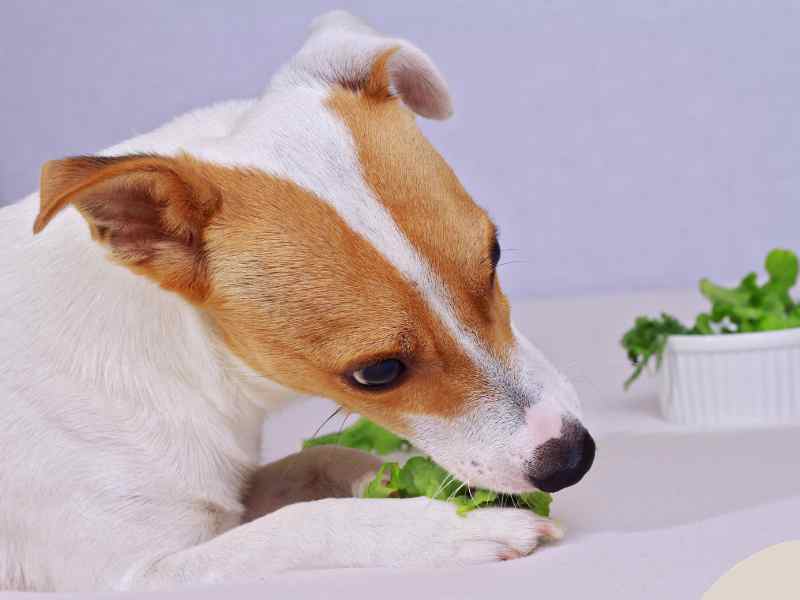In the ever-evolving world of canine nutrition, fermented vegetables stand out as a significant addition to a dog’s diet. Just like they do for humans, fermented vegetables bring a whole host of benefits to your doggy’s microbiome. This can make a huge difference in a healthy gut, which can make a difference in an enhanced immune system and overall health!
Prebiotics, Probiotics, and Postbiotics For Dogs
In the context of a dog’s digestive health, the connection between prebiotics, probiotics, and postbiotics plays a very important role.
Prebiotics are types of dietary fiber that serve as food for probiotics. They are found in certain plants and are not digestible by dogs. Instead, they reach the colon intact and ferment there, providing nourishment for beneficial gut bacteria. This process supports the growth and activity of probiotics.
Probiotics are live microorganisms, primarily bacteria, that provide health benefits and help bring balance to gut microbiomes. They also help in digestion and help in the absorption of nutrients. Probiotics can also bolster the immune system and may help prevent gastrointestinal issues like diarrhea.
Postbiotics are the byproducts of probiotic bacterial fermentation. These include short-chain fatty acids, peptides, teichoic acid, and other metabolic byproducts. Sounds scary, but they’re actually great byproducts! Postbiotics can influence gut health by modulating the immune response, providing anti-inflammatory effects, and strengthening the gut barrier function. They may also play a role in preventing pathogen growth and enhancing mineral absorption!
Together, these components work in harmony to maintain a balanced gut environment, which is crucial for a dog’s overall health and well-being. A balanced gut contributes to effective digestion and robust immunity and can even impact mood and behavior, as the gut-brain axis is so key. Including sources of prebiotics, probiotics, and postbiotics in a dog’s diet can be a proactive approach to supporting their digestive health.
What are Fermented Vegetables?
Fermentation, essentially, is the process where natural bacteria feed on the sugar and starch in the food, creating lactic acid. This process preserves the vegetables and produces beneficial enzymes, b-vitamins, Omega-3 fatty acids, and various strains of probiotics. For dogs, these elements are crucial in promoting a healthy gut, enhancing the immune system, and aiding in nutrient absorption.
Fermented vegetables are those that have been through a lacto-fermentation process. This is a natural preservation method that not only increases the shelf life of the vegetables but also boosts their nutritional value. This process typically involves submerging the vegetables in a brine solution, where naturally occurring Lactobacillus bacteria (safe and beneficial for dogs) convert sugars into lactic acid. Not only is this a natural preservative process, but it is one in which healthy bacteria are produced and can aid in your dog’s gut health.
Fermented Foods and Improved Gut Health For Dogs
The dog gut is a pretty complex ecosystem that benefits significantly from probiotics. These probiotics are abundant in fermented foods, which is why they’re good for humans and dogs alike. These probiotics help balance intestinal flora, aiding digestion and improving dogs’ overall gastrointestinal health. They are particularly beneficial in cases of diarrhea or after a course of antibiotics, which can disrupt the gut microbiome.
Microgreens Are Good For Dogs
Microgreens are the young seedlings of edible vegetables and herbs. They are nutrient-dense and can be an excellent addition to your dog’s fermented vegetable mix. They are rich in antioxidants, vitamins, and minerals. When microgreens are fermented, their nutritional value is enhanced, making them even more beneficial for your best friend.
Making Fermented Veggies at Home for Your Dog
Homemade fermented vegetables are a cost-effective option and allow for complete control over the ingredients used. This process involves chopping the vegetables, adding them to a jar with a brine solution, and allowing them to ferment at room temperature for several days. This low-tech process ensures the growth of beneficial bacteria, while inhibiting harmful ones. It’s an easy way that pet parents can add the benefits of fermented vegetables for dogs to their diet without a lot of work or cost.
The Missing Link in Modern Canine Nutrition
Many commercial dog foods simply lack the variety and quality of nutrients found in natural foods like fermented vegetables. Incorporating these into your dog’s diet can help address these nutritional gaps, providing enzymes and bacteria that aid digestion and absorption of nutrients, often missing in processed dog foods.
Best Fermented Vegetables for Dogs
So what fermented vegetables for dogs are you interested in serving? When you’re deciding what to give your furry family member, a few vegetables rise to the top of the ‘best of’ list. They include:
- Carrots: Rich in beta-carotene, vitamins, and fiber; dogs love them!
- Cabbage: This is excellent for digestion and contains vitamins K and C. Remember, it’s cruciferous, so start slow!
- Green Beans: Low in calories and high in iron and vitamins, these are also great for helping manage healthy weights while adding healthy bacteria to your dog’s diet.
- Beets: A good source of fiber, folate, and manganese, beets are a superfood for dogs and humans!
- Broccoli: High in fiber and vitamin C but again, start slowly as these can bring about some initial gas in the internal fermentation process inside your dog.
These vegetables, when fermented, become easier to digest, allowing dogs to absorb more nutrients effectively.
Potential Weight Management Benefits For Dogs
Fermented vegetables can be a great addition to a weight management plan for dogs. They are generally low in calories and high in nutrients, which can help maintain a healthy weight while ensuring your dog gets all the necessary vitamins and minerals.
Dogs that Might Want to Pass on the Fermented Veggies
Dogs with certain health conditions, such as those with compromised immune systems, severe allergies, or specific digestive issues, might need to avoid certain fermented foods.
Some dogs might be sensitive to histamines, which are substances produced during fermentation. If your dog shows signs of allergies or sensitivities, it’s important to introduce fermented foods slowly and in small amounts.
Something else to think about when it comes to fermented foods for dogs is that they may actually make the gut situation worse if your dog is dealing with an infection. Prebiotics in fermenting vegetables and fermented food can also feed yeast in your dog’s intestines, and when they’re already dealing with infection or overgrowth of yeast, that’s not necessarily what you want to have happen. Avoid fermented food for your dog until you’re sure there’s not an overgrowth of yeast.
We always recommend talking to your vet before you add anything in. Generally speaking, though, the benefits of fermented vegetables and fermented foods for dogs are widely known and appreciated!
Not All Fermented Foods Are Probiotic
Contrary to popular belief, it’s important to note that not all fermented foods provide probiotics. For example, some pickled vegetables are fermented using vinegar instead of the natural bacterial fermentation process, which does not yield the same probiotic benefits.
But Isn’t Salt Bad for Dogs?
While excessive salt intake is harmful to dogs, the small amounts used in the fermentation process are generally safe. However, ensuring that your dog’s overall salt intake remains within safe limits is important, so be cognizant when fermenting foods for dogs.
Feeding Suggestions for Fermented Vegetables For Dogs
Start with small amounts of fermented vegetables and observe your dog’s reaction. Gradually increase the quantity if there are no adverse effects. Balance is key, so these should be considered a supplement to their regular diet, not a replacement. And, as always, consult with your vet whenever adjusting anything in your dog’s diet.
Incorporating fermented vegetables and fermented food into your dog’s diet can provide numerous health benefits. However, it’s essential to tailor this approach to your dog’s specific needs and health status. The best news is that you can really create some great treat options for them, while helping their gut health be the best it can be too. That’s what we call a win-win!
One of the things we love doing for Bernie and Lady is making dog treats! Here’s the easy recipe of one of their favorites, and it includes fermented veggies too!
Fermented Veggie Dog Biscuits
Ingredients:
- 1 cup whole wheat flour (or any dog-safe flour)
- 1/2 cup rolled oats
- 1/4 cup fermented carrots, finely chopped
- 1/4 cup fermented green beans, finely chopped
- 1 egg
- 2 tbsp coconut oil
Instructions:
- Preheat your oven to 350°F (175°C).
- In a bowl, mix together the flour and oats.
- Add in the fermented vegetables, egg, and coconut oil. Mix until a dough forms.
- Roll out the dough on a floured surface and cut into shapes using a cookie cutter.
- Place on a lined baking sheet and bake for 20-25 minutes or until golden brown.
- Let cool before serving to your dog.


